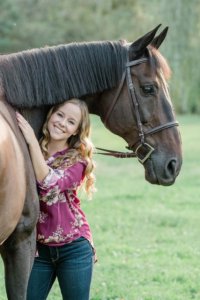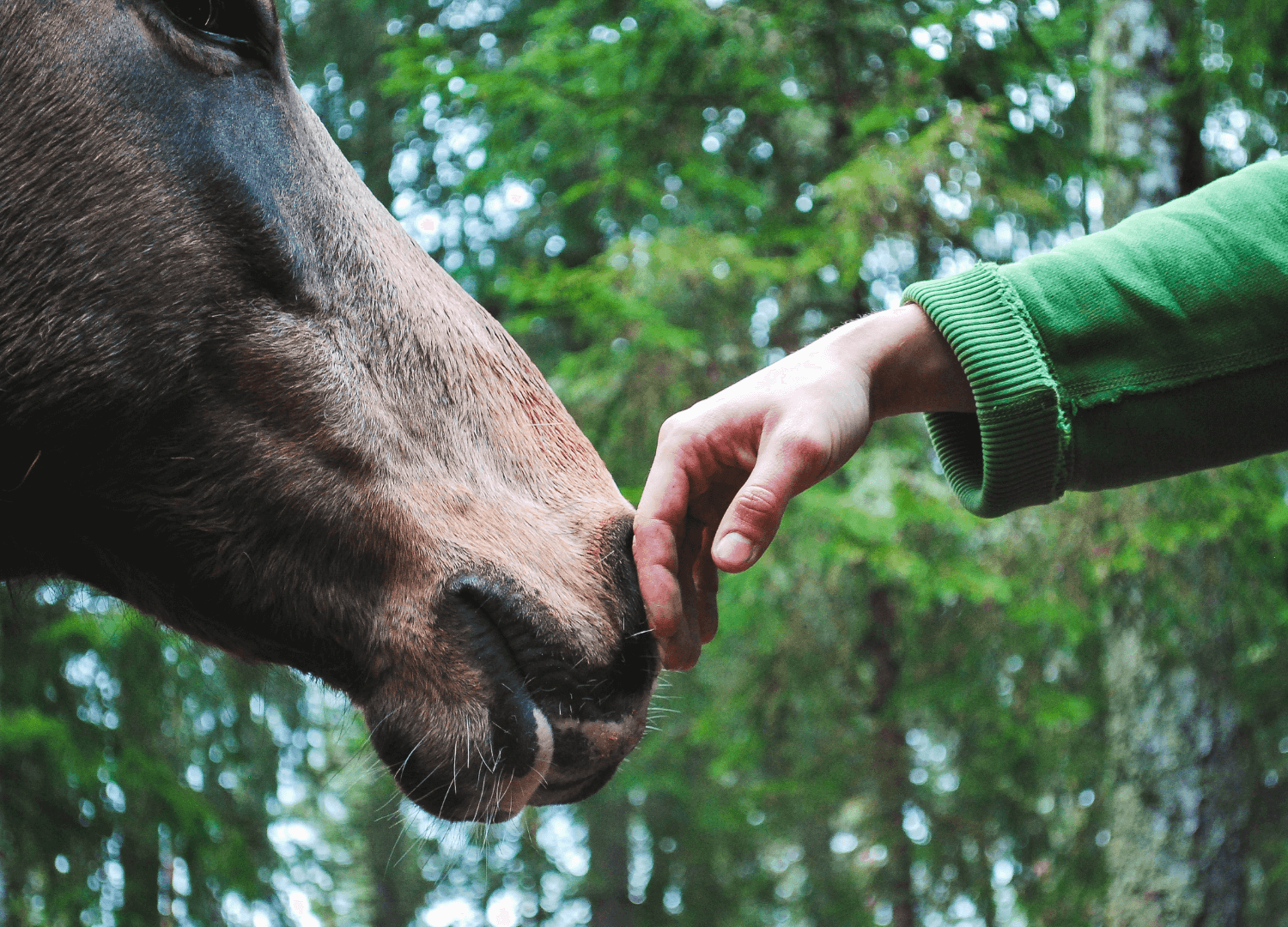In my previous blog, we discussed what trauma is and how it impacts our minds and bodies after a riding accident. Next our focus is on healing the trauma you experienced while riding. As equestrians, we’re trained to be brave and strong-willed. There’s no space for us to be afraid or second guessing ourselves. You may hear things from your trainer or fellow riders like, “it’s part of the sport,” or “just get over,” and my personal favorite, “after that fall, you’re a real rider now.” These statements can feel so invalidating.
Taking a deeper look at why you’re experiencing a traumatic reaction from a horse-related accident doesn’t show weakness. In fact, facing this experience head on shows that bravery that’s instilled in us. This mental and emotional work can feel like a challenging course, but the benefits feel just as victorious as a perfect ride.
Focus on Your Breath:
Hyperarousal is a feeling you might experience after a horse-related accident. This means your body and mind are on high alert after a horse-related accident. This might look like jumping out of your skin at certain noises that trigger a memory of the accident. It might also feel like your heart is pounding out of your chest when you’re handling a horse. The amazing thing about our bodies is that we can soothe this response- just by breathing. Before entering the stable, handling a horse, or doing anything you believe might trigger this hyperarousal state for you, take a few slow, deep breaths.
Inhale through your nose for three seconds: one, two three
Hold for three seconds: one, two, three
Exhale through your nose for five seconds: One, two, three, four five.
Try this a few times. Essentially, you are hitting the breaks on your nervous system. This gives opportunity to be more grounded while you’re at the barn; or doing whatever seems to make you anxious following the horse-related accident.
Becoming Self-Aware at the Barn:
One of the essential pieces to healing from trauma is being aware of the thoughts and feelings we have in our bodies. If you turn inward, what physical sensations are you experiencing? Maybe your shoulders are tight or your chest feels heavy. What emotion or feeling is paired with that physical sensation? What thoughts or beliefs accompany those sensations and feelings? Following a riding or horse related accident, you might feel a tightness in your chest every time you enter the stable. This makes you feel anxious and the thought you pair with this is “I’m not a good rider, I’m going to get hurt again.”
Being mindful of the thoughts, feelings, and sensations is particularly important; instead of just ignoring them. If you attempt to ignore how anxious you feel each time you get your horse from the paddock, how would you find healing? Think of the mindfulness process as piecing together a puzzle. Each though, feeling, or sensation is a piece to the healing puzzle following a horse-related accident.
Connect with like-minded equestrians:
“Much of the wiring of our brain circuits is devoted to being in tune with others. Recovery from trauma involves (re)connecting with our fellow human beings.”- Bessel van der Kolk, MD, one of the most well-known professionals in treating trauma.
While you might have shared your horse-related accident with your loved ones, they might not understand the full impact of the accident, because they’re not in our industry. Their comfort and love might feel nice, but if they do not fully acknowledge the depth of your accident, it can feel a bit invalidating. As I previously mentioned, this sport also makes us “tough” and you might not receive comforting words from fellow riders. If you’re lucky enough to have another barn mate who understands what you’ve experienced, share your story. This fellow rider might also be able to help you gain your confidence back and feel safe at the barn again. Knowing that you have someone in your corner that knows and understands your experience can be immensely helpful.
Seek professional help from a trauma-informed (and equestrian-informed therapist):
If you’re finding that it’s too difficult to work through the trauma on your own, reach out to for help. While working with a therapist, you will learn coping skills that will help you stay grounded, process and work through the trauma memories from the horse-related accident, and get back to doing what you love dearly- being with your horse(s) and feeling safe again. While not entirely necessary, it is helpful if your therapist has experience in the equestrian world. Having a basic understanding of horses and what riding entails could be helpful in the treatment process. Treatment modalities such as Eye Movement Desensitization Reprocessing (EMDR) and Trauma-Focused Cognitive Behavioral Therapy (TF-CBT) are all treatment modalities that Brave Minds Psychological Services offer to treat equestrian-related trauma.
![]()
Interested in Trauma Therapy?
Contact us for a free video consultation.
(908) 242-3634 or Connect Now



